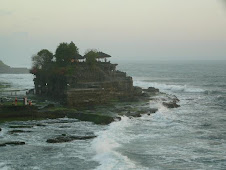By Rob Taylor
CANBERRA (Reuters) - Two Myanmar fishermen have survived for almost a month in shark-infested waters by floating in a large ice box after their boat sank, rescue officials said.
The men, both aged in their 20s, were on a 12-meter Thai fishing boat with 18 others when it sank in heavy seas off Australia's north coast on December 23, said Australian Maritime Safety Authority spokeswoman Tracy Jiggins.
"They had no safety equipment, no beacons, no means of communication and they'd been drifting for 25 days," Jiggins told Reuters Tuesday, describing the ice box as "desk sized."
"For them to have even been spotted in a huge body of water is amazing," she said.
The men were spotted by an Australian coastal patrol aircraft Saturday. The pair were winched onto a rescue helicopter and taken to hospital Thursday Island, off Australia's far north.
Hospital officials said the pair were hungry and dehydrated after drifting 25 days at sea during the monsoon season and recent cyclonic storms in the region, but they were recovering well and had already been released.
The pair would now be questioned by immigration officials and police, who had not yet determined how the pair survived and what they did for food and water.
Jiggins said the others on board the boat would certainly have perished and no search for other survivors was planned.
"The information they provided to us was that they witnessed other crew members in the water, none of whom had any flotation device, so we've done an assessment and we don't believe anybody would be able to survive 25 days actually in the water," she said.
It was also unclear where the Thai-based fishing boat, crewed by Thais and a handful of people from Myanmar, sank and how far the pair had drifted before they were picked up 60 nautical miles northwest of Horn Island.
"It would be difficult to determine where that search should be. That's a huge amount of water they could have covered, and we have notified search and rescue officials in Indonesia," Jiggins said.
Australia has one of the longest coastlines in the world and the country's search-and-rescue patrol zone covers a tenth of the world's surface, or 53 million square kilometres (20 million square miles) of the Indian, Pacific and Southern Oceans.
The Torres Strait, between Australia and Papua New Guinea, is infested by sharks and the area is regularly fished by both licensed and illegal fishing vessels, many from Asia.
(Editing by Mark Bendeich)
 download latest Opera for PC or Operamini for handphone
download latest Opera for PC or Operamini for handphone 



No comments:
Post a Comment